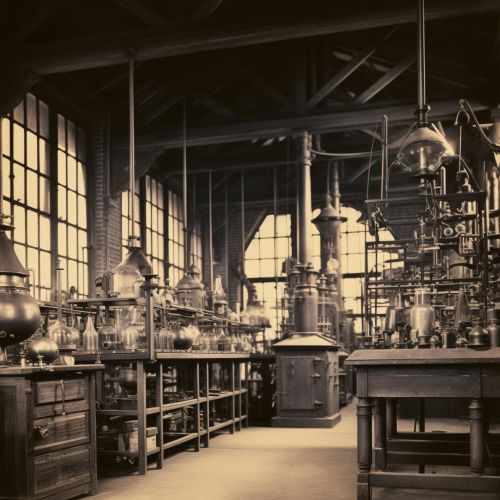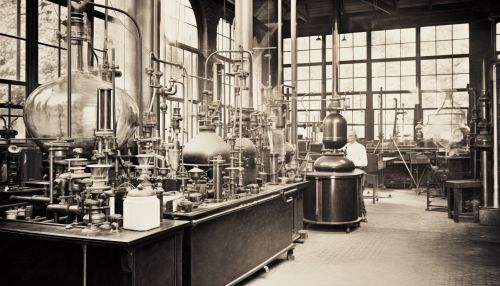Hermann Staudinger
Early Life and Education
Hermann Staudinger was born on March 23, 1881, in Worms, Germany. He was the son of a machine factory owner and his wife. Staudinger's early education was in the sciences, where he showed a particular interest in chemistry. After completing his secondary education, he enrolled at the University of Halle in 1899 to study chemistry.
Academic Career
After completing his doctorate in 1903, Staudinger worked as a research assistant at the University of Strasbourg. In 1907, he was appointed as an associate professor at the Technical University of Karlsruhe. In 1912, he moved to Switzerland where he worked as a professor at the Swiss Federal Institute of Technology in Zurich. Staudinger returned to Germany in 1926 to take up a position at the Albert Ludwig University of Freiburg, where he remained until his retirement in 1951.


Research and Discoveries
Staudinger's research focused on the structure of organic compounds. He is best known for his work on polymers, large molecules made up of repeating subunits. Prior to Staudinger's work, it was believed that polymers were clusters of small molecules (colloids). Staudinger proposed that they were instead long chains of atoms - a theory he called 'macromolecular chemistry'. This was a controversial idea at the time, but was eventually accepted and forms the basis of modern polymer science.
Staudinger also made significant contributions to the field of organic chemistry. He discovered the Staudinger reaction, a process used to convert azides into amines. This reaction is still widely used in organic synthesis today.
Awards and Honours
Staudinger's work on polymers was recognized with the Nobel Prize in Chemistry in 1953. He was also awarded the Liebig Medal by the German Chemical Society in 1933 and the Lavoisier Medal by the French Chemical Society in 1957.
Personal Life and Death
Staudinger married Magda Woit in 1927. The couple had two children. Staudinger was known for his love of hiking and nature. He passed away on September 8, 1965, in Freiburg, Germany.
Legacy
Staudinger's work has had a profound impact on the field of polymer science. His theories form the basis of our understanding of polymers and have led to the development of new materials and technologies. Today, the Staudinger reaction is a fundamental tool in organic synthesis.
